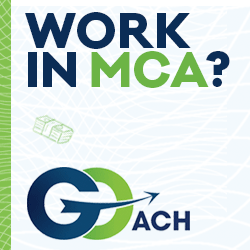Results 1 to 9 of 9
-
07-18-2013, 09:04 AM #1Senior Member











 Reputation points: 17416
Reputation points: 17416
- Join Date
- Jul 2013
- Posts
- 352
Deloitte / Grey's Anatomy Goes Merchant Cash Advance
http://www3.cfo.com/article/2013/7/b...-greys-anatomy
Debtor-in-Possession Loan Kept Tully’s Brewing
Actor Patrick Dempsey of “Grey’s Anatomy” fame provided the flash behind the distressed sale of Tully’s Coffee. But an out-of-the-ordinary debtor-in-possession loan was the unsung hero.
The bankruptcy sale of Tully’s Coffee overflowed with drama. The Pacific Northwest coffee chain would have been sold to Starbuck’s if Green Mountain Coffee Roasters, another big name in java, hadn’t refused to affirm the purchase. Eight bidders vied to buy the company in a one-day sale that produced a price double the initial “stalking horse” bid. Last but not least, it was Patrick Dempsey, the "Grey’s Anatomy" star who plays a neurosurgeon nicknamed “McDreamy,” who eventually won the auction.
But it was what went on behind the curtain that really saved Tully’s. In particular, a nontraditional debtor-in-possession (DIP) loan allowed the company to continue to operate its stores until a 363 asset sale was completed.
By the time the 20-year-old coffee chain declared bankruptcy in October 2012, it had little choice but to try to file Chapter 11 and arrange a 363 sale, in which, instead of submitting a reorganization plan, the petitioner arranges to auction the assets to a buyer in an expedited process.
The company had never generated positive cash flow, according to the Rob Carringer of the Deloitte Corporate Restructuring Group, which advised Tully’s. It had a host of poorly performing stores that needed to be closed, and relatively high coffee prices at the time (over $1.80 per pound) were depleting what little excess cash the business had.
And the company had been selling off pieces of itself over the years just to keep its head above water. Tully’s operating company, TC Global, had sold the roasting plant, the Tully’s brand name and its wholesale business to Green Mountain Coffee Roasters for $40.3 million in 2009. (GMCR then licensed the Tully’s name back to TC Global.) In 2006, TC Global had also disposed of the rights to operate Tully stores in Japan.
Being “asset-lite,” though, presents a problem in bankruptcy. Debtors usually need to arrange DIP financing to get working capital to (1) keep a company running and (2) restore vendor and customer confidence in the ability of the company to maintain liquidity. Often, DIP financing is secured by some of the company’s assets. In Tully’s case, it had very little to borrow against. The coffee shop business is not asset-intensive anyway. “Maybe you have a coffee machine and a couple of refrigerators,” says Carringer.
The loan Tully’s needed was also a relatively small amount of money. “This was a small deal; it’s harder to borrow money on a small deal,” says Carringer, because it takes a lender the same amount of due diligence to lend a company $100 million as it does $10 million.
So the Deloitte restructuring team and Tully’s other advisers came up with a unique solution: a merchant cash advance, which is a form of receivables financing more common to startups that leverages the future credit and debit card sales of the business.
In Tully’s case, the merchant cash advance provider got 20 percent of the future credit card and debit card receipts of Tully’s Coffee shops until the “loan” was paid in full. The money was sent directly to the lender from the credit card processor on a daily basis. The financing was a “superpriority” loan, meaning the lender would be the first to get paid back and its claim would have priority over administrative expenses incurred during Chapter 11 and over all other bankruptcy claims.
Merchant cash advances are controversial. They are not technically a loan. The borrower pays a high rate of interest — as much as 50 percent on an annualized basis — and the industry is largely unregulated. But the new money worked in Tully’s case, largely because the restructuring team got the company to cash flow positive in the first month following the bankruptcy filing, says Mike Juniper, a senior manager in the Deloitte Corporate Restructuring Group.
It did that by closing 19 money-losing locations and reducing overhead, although it was able to keep the jobs of 500 employees.
By last January, when the auction was won by Global Baristas LLC — Dempsey’s investment group — for $9.2 million (including assumed liabilities) Tully’s Coffee was a more attractive business, especially because the buyer got the assets free and clear of any liens or claims (as happens in a 363 asset sale). And the company was also in a better position to reject an initial $4.3 million stalking-horse bid from a Denver private equity firm and a higher, $10.5 million offer by Starbucks and Philippines-based AgriNurture. The Starbucks deal would have carved out the best Tully’s stores and turned them into Starbuck’s outlets. (A bankruptcy court backed the decision to go with the Dempsey bid.)
For the Deloitte restructuring group, the outcome was relatively unusual for this kind of Chapter 11 case. “It’s rare you take a retailer into bankruptcy and generate enough proceeds to pay all creditors in full,” says Carringer. Often when a retailer goes into bankruptcy the creditors are eventually left with nickels on the dollar, he says.
-
07-18-2013, 10:29 AM #2
so are you the guy that funded them while in bankruptcy?
-
07-18-2013, 10:37 AM #3Member

 Reputation points: 20
Reputation points: 20
- Join Date
- May 2013
- Location
- Long Island's Great South Bay !
- Posts
- 9
We funded them..
Interesting Deal ! Right ???
-
07-18-2013, 12:19 PM #4Senior Member











 Reputation points: 99426
Reputation points: 99426
- Join Date
- Sep 2012
- Location
- New York, NY
- Posts
- 1,780
"The borrower pays a high rate of interest — as much as 50 percent on an annualized basis — and the industry is largely unregulated."
The typical MCA is more like 76% annualized
-
07-18-2013, 01:49 PM #5Member

 Reputation points: 35
Reputation points: 35
- Join Date
- Sep 2012
- Posts
- 72
gibraltar funded a merchant in bankruptcy? Am I reading this right? Is this typical or was it a one time rare exception?
-
07-18-2013, 02:33 PM #6Member

 Reputation points: 20
Reputation points: 20
- Join Date
- May 2013
- Location
- Long Island's Great South Bay !
- Posts
- 9
We look at deals on an individual basis.. This one was brought in be a reliable banking partner.. The merchant has 20 years tib and does $37mm/yr in sales .. $1mm/mo in cc... it was a large, low factor, short term advance to provide operating capital as a bridge during the sale... It succeeded.. I was not involved in the deal but it was shown to me as an example of GCA creativity.. When an asset based lender expands into MCA there are different thought processes...
We don't do BK deals... Don't send me any.. Please.. This one was a deal that made sense that came from a bank..
Check out our website and history.. gibraltarbc.com ... dladd@gibraltarca.com
FYI: I have no idea who posted the original post, but when I saw it I called my office to verify that we did in fact fund it...
Duncan
-
07-21-2013, 05:00 PM #7Member

 Reputation points: 35
Reputation points: 35
- Join Date
- Sep 2012
- Posts
- 72
-
07-21-2013, 07:14 PM #8Member

 Reputation points: 20
Reputation points: 20
- Join Date
- May 2013
- Location
- Long Island's Great South Bay !
- Posts
- 9
-
07-24-2013, 12:01 PM #9Senior Member











 Reputation points: 47257
Reputation points: 47257
- Join Date
- Apr 2013
- Location
- Basalt CO
- Posts
- 867


 Reply With Quote
Reply With Quote


















